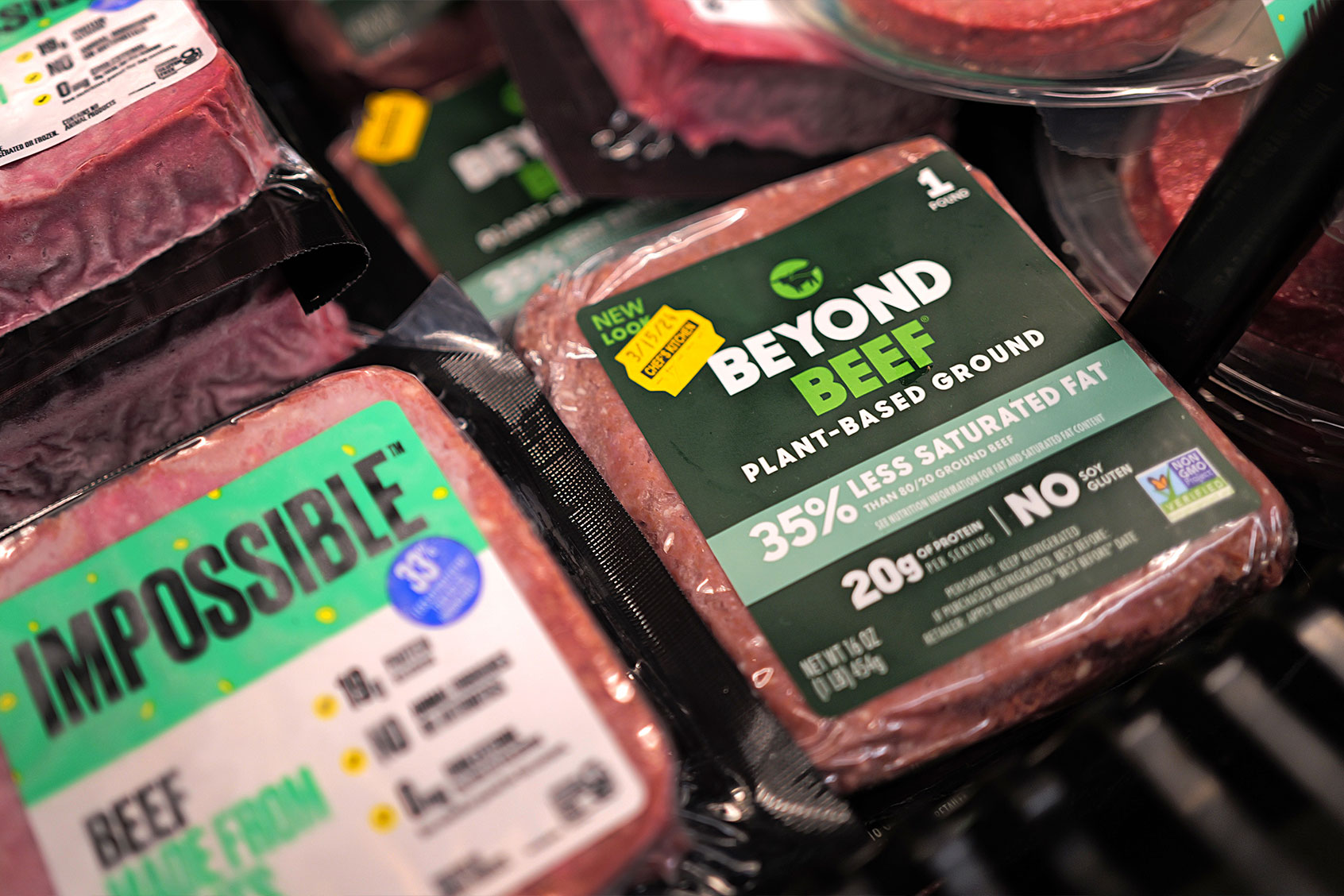Slop. This is the four-letter word Democratic Pennsylvania Sen. John Fetterman used to describe lab-grown meat on social media, while seemingly begrudgingly praising “Crash-and-Burn Ron” Desantis after the Republican governor banned the manufacturing and sale of cultured meat in the state of Florida.
“I co-sign this,” Fetterman wrote. “As a member of @SenateAgDems and as some dude who would never serve that slop to my kids, I stand with our American ranchers and farmers.”
This is just the tip of the iceberg. As cultured meat has entered the culture wars, and questions around its production and distribution have become political fodder — for instance, on Monday, Alabama followed Florida’s lead in banning the products — its detractors have hurled a series of colorful descriptors its way. DeSantis has described its limited introduction to the market as part of the “global elite's plan to force the world to eat meat grown in a petri dish,” while Tennessee representative Bud Hulsey said in a March hearing that “some folks would probably like to eat bugs with Bill Gates, but not me.”
American politicians aren’t alone in their trepidation around lab-grown meat, which is produced by culturing animal cells in a bioreactor, where they multiply and differentiate into muscle tissue, and which is then harvested and processed to create an alternative to conventional meat production. A March survey-based report out of Purdue University’s Center for Food Demand Analysis and Sustainability found that “many consumers view conventional meats as both tastier and healthier than laboratory-grown alternatives.”
Joseph Balagtas is a professor of agricultural economics at Purdue, who also led the university’s recent report about consumer attitudes regarding cultivated meat. His research team found “similar results when evaluating consumers’ willingness to try conventional and cultivated meats in a restaurant setting.”
For common meats, such as beef, chicken and pork, the researchers found that about 90% or more of consumers are willing to try conventional or non-cultivated meats.
“The proportion of consumers willing to try the cultivated versions of these meats is around 30 percentage points lower, though it is still a majority, about 60%,” Balagtas said. “Given the fact that cell-cultured meat is not widely available, these results reflect consumer distrust of the unknown when it comes to food, which is a barrier for any novel food trying to break into the market.”
We need your help to stay independent
As a result, many conventional meat manufacturers are already beginning to tailor their public messaging about their products. For instance, as one lamb and beef producer in the United Kingdom told researchers as part of a recent survey they thought “marketing their produce as ‘the real stuff’ might give them a competitive edge compared to protein produced in a bioreactor.”
However, farmers and ranchers aren’t the only ones who see a potential marketing opportunity from lab-grown meat’s simmering PR crisis. Plant-based meat companies are also starting to adapt their packaging in an effort to appeal to new customers, especially those who may want an alternative to factory-farmed meat but aren’t keen on the idea of cultivated meat (which isn’t available to purchase commercially in the States currently, even if one wanted to).
One major way plant-based companies are doing this is through the use of color. As Charlotte Pointing wrote for VegNews on Tuesday, “red is the new green” when it comes to packaging for vegan meat substitutes because its a color often associated with fast-food, and thereby quick, easy flavor — especially when trying to target “flexitarians” or omnivores.
For instance, Impossible Foods, one of the leading plant-based meat brands in the country, debuted new, red packaging — a departure from their current cyan labels — today at Natural Products Expo West. The packaging will be seen for the first time on the packaging for their new Impossible Beef Hot Dogs.
"We’re the fastest-growing plant-based company in America, so it’s a good time to evolve from a position of strength."
“We’re the fastest-growing plant-based company in America, so it’s a good time to evolve from a position of strength. We wanted packaging that lived up to and reflected the deliciousness of our products while really popping on the shelf,” Peter McGuinness, president and CEO of Impossible Foods, said in a statement.
One of Impossible Foods’ main competitors, Beyond Meat, is taking a different tack. As Food Business News reported on Monday, the company has spent the last three years working with groups like the American Diabetes Association and American Heart Association to meet the organizations’ respective criteria for endorsement. Those endorsements are now reflected on Impossible Foods’ packaging because “Beyond Meat’s management team believes marketing messages focused on the nutrition profile of its products will provide a point of differentiation in the market.”
During a May 8 conference call, Ethan Brown, the chief executive officer of Impossible Foods, said the product has “been so well received by not only the medical community, but the nutrition and registered dietitian community, that we have high confidence that it addresses the No. 1 issue in the category.”
It also sounds like some of the ire that has been previously directed at plant-based meat products has found a different target with the proliferation of cultivated meat, which also potentially indicates a larger opening in the market for vegan burgers, hot dogs and tenders.
“You can trust that this product has the health benefits that you’d expect it to have,” Brown said. “And, so, that’s a very different scenario than [the] one we were facing a year ago, when there was just so much negative noise that was being drummed up about the category.”
Read more
about this topic

